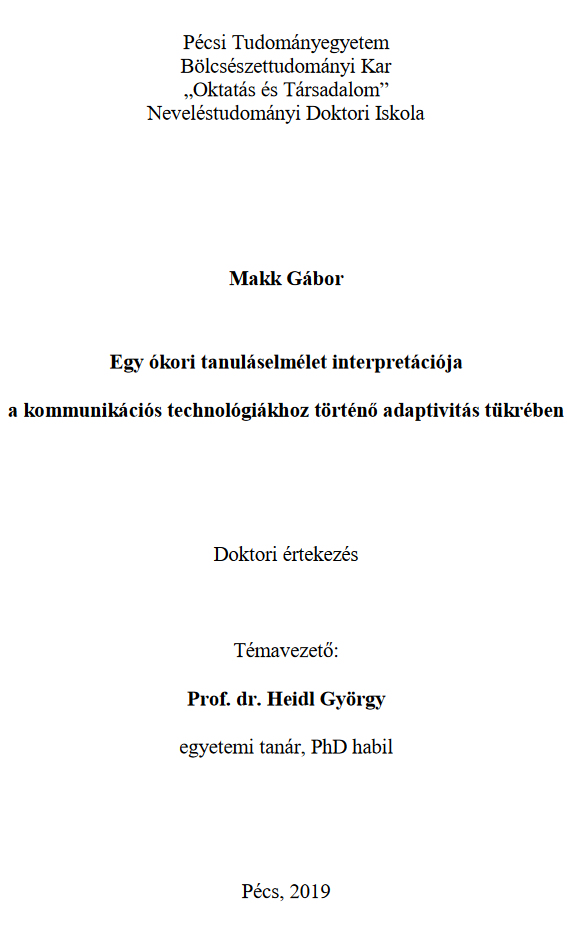Egy ókori tanuláselmélet interpretációja a kommunikációs technológiákhoz történő adaptivitás tükrében
Abstract
After completing my graduate studies in History at the Faculty of Humanities at the University of Pécsin 2010, I explored how portfolio can be used as a method of development in history learning and teaching in response to the cognitive revolution.Therefore, in the theoretical framework of my thesis I introduced a popular constructivist didactic typology. I was concerned that constructivist didactics, which are the cognitive basis of the portfolio method, offer a better opportunity than the learning conceptions of previous historical periods. According to this typology, aprocessof development can be outlined from antiquity to the present, of whichdidactics have always sought to surpass the formerin various ways.Given the wideacceptance of the proliferation of computers, that is, the contextbetween thecognitive revolutionand the constructivist concept of learning today, why not to presumea connection between the adaptivityto pre-computer communication technologies and earlier learning concepts? Derived from thisidea,the questionof how adaptivityto the phonetic alphabet might have influenced ancient learning theoriesemerged. To what extent has adaptivity to book printing changed previous knowledge and learning theories and the way in which they were interpreted? What led to theconsequencethat knowledge was not originateddirectly from the soul but indirectly from an outside the cognitive mindin the Gutenberg Galaxy? In the light of the questions raised, thisdoctoral dissertation aimsto point outthat the concept of learningis in constant change, depending on its adaptivityto communication technologiesfrom antiquity to the present day.For this reason, I assume that the engine of change is not driven by the pursuit of quality development, but by a different interpretation of the relationship between the cognitive mind and the outside world.Namely, the adaptivityto the phonetic alphabet entailed the possibility of separation of the subject and the object, the question of how the mind could be aware ofthe outside world mayhave arisen at all, resulting in paradigm shifts.A historical approach to the problem of adaptation introduces the role of adaptivityto the phonetic alphabet in the formation of the Platonic Idea Theory, which sees the world as an issue that can be grasped by perception and intellect, andformation ofthe Anamnesis Theory that bridges the two.As paradigm shifts not only change theories of knowledge and learning, but
3also results the former concepts to appear in different colors, the research focuses on how adaptivityto book printing influences the modern interpretation of Plato's learning theory.

